CTRL+K
CTRL+K
In Morocco’s varied terrain, ranging from towering mountains to arid deserts, resides an extraordinary botanical wealth of over 4,200 aromatic and medicinal plant species. Within this diverse landscape, nature nurtures a remarkable tapestry of plant life. The Atlas Mountains’ ruggedness contrasts with the sun-bathed Saharan plains, fostering unique botanical treasures. Herbs like thyme, rosemary, lavender, and saffron showcase Morocco’s rich flavors, fragrances, and healing potential. Join us on an exploration of this botanical heritage, discovering the enchanting flavors and therapeutic uses that Morocco’s flora has to offer.
Thyme, locally recognized as “zaatar,” stands as a fundamental herb in Moroccan culinary traditions and medicinal practices. Its aromatic leaves, abundant in essential oils, impart a uniquely earthy and fragrant essence to savory delicacies like tagines, soups, and grilled meats. From a medicinal standpoint, thyme is esteemed for its antimicrobial, antiseptic, and expectorant qualities, rendering it a trusted remedy for respiratory conditions such as coughs and bronchitis.
Rosemary, known as “ikleel al-jabal” in Arabic, flourishes in Morocco’s coastal areas and mountainous landscapes. Its distinct woody fragrance and sharp taste lend depth to Moroccan cuisine, especially roasted meats, stews, and bread. In traditional medicine, rosemary is highly valued for its potential cognitive-enhancing properties. It’s believed to boost memory, concentration, overall brain function and improve blood circulation.
Lavender, locally called “khzama,” adorns Morocco’s valleys and gardens with aromatic flowers. The cuisine embraces lavender’s delicate floral essence in sweets, pastries, and beverages, lending elegance to traditional treats. Valued for its soothing properties, lavender promotes relaxation, reduces stress, and enhances sleep quality. Hence, it’s widely used in aromatherapy, herbal teas, and bath products.
Saffron, known as “zafran,” is a prized seasoning. It originates from a part of the crocus bloom. Morocco’s fertile valleys cultivate saffron. The spice lends a golden color and unique taste. It enhances many dishes, like savory tagines or sweet desserts. Medicinally, saffron offers benefits. These include antioxidant and anti-inflammatory qualities. Saffron can help relieve depression symptoms and improve mood.
In Morocco, mint carries the endearing names “nana” or “n’ana.” Thriving in the nation’s agreeable climate and fertile earth, it lends a refreshing taste and cooling sensation. This prized herb frequently enhances Moroccan cuisine, gracing teas, salads, and sweet treats. Beyond culinary delights, mint offers medicinal virtues, soothing digestive woes like indigestion, bloating, and nausea. Its calming influence extends to easing headaches, congestion, and breathing discomforts.
Artemisia, locally called “shiba,” belongs to a group of aromatic plants found across Morocco’s dry areas. In traditional Moroccan medicine practices, different artemisia varieties treat digestive issues, fever, and parasitic infections. Certain species, like Artemisia herba-alba, possess antimicrobial and anti-inflammatory qualities. These properties make them a frequent component in herbal remedies and poultices used for healing purposes.
Argan trees are famous as the “Tree of Life.” They grow special oil known as argan oil. People like argan oil a lot, they use it for cooking food, making cosmetics, and medicine. Argan oil is full of good things like antioxidants, fatty acids that are important for the body, and vitamin E. These things in argan oil make it very helpful for having healthy skin and hair. They also make argan oil good for the body’s overall health and well-being.
Chamomile, known as “Baboonj” in Morocco, is a highly valued herb in traditional Moroccan tea culture. It is treasured for its calming and soothing properties that have been enjoyed for generations. When consumed as a tea, chamomile helps reduce feelings of anxiety and stress, promoting a sense of relaxation and inner peace.
Cinnamon, called “Kerfa” in Morocco, is valued as a spice for cooking and healing. Its distinct taste improves Moroccan dishes, while its medicinal qualities aid wellness. Prized for antioxidants and anti-inflammatory effects, it helps regulate blood sugar and circulation – key to traditional Moroccan remedies and delicious cuisine.


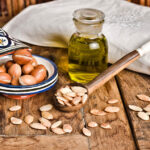
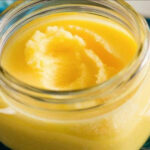
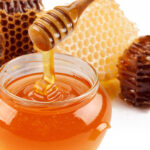


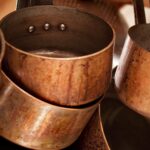
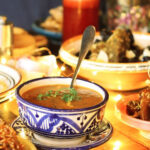

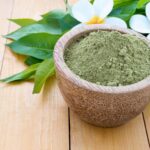




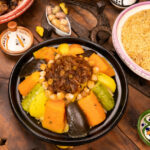
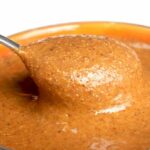
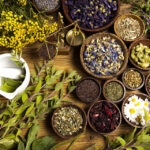
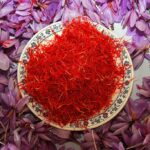



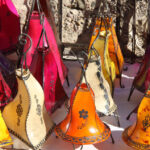
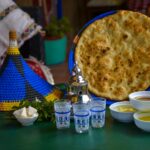

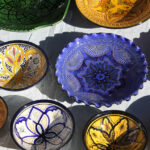
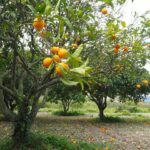


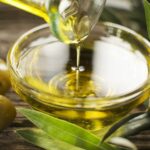






There are no results matching your search.
Reset